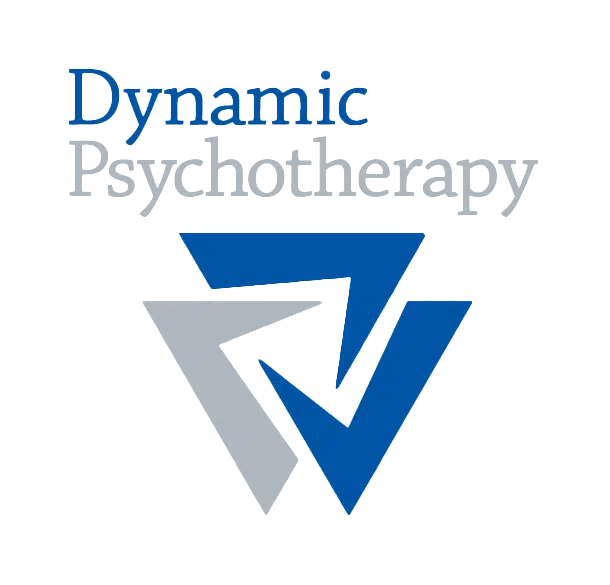Understanding Therapy
Therapy, a cornerstone of psychological support, comes in various forms, each designed to address the unique aspects of human experiences. Whether it’s the personal battles we face alone, the intricacies of our romantic relationships, or the complex web of family dynamics, therapy provides a route to addressing what is currently not working.

Individual Therapy: The Personal Journey
Individual therapy, also known as psychotherapy or counselling, is a process in which a patient works one-on-one with a trained therapist in a safe, supportive, and confidential environment. The primary goals of individual therapy can be broadly categorised into several key aspects:
Understanding Emotional Problems or Psychological Conditions: Therapy helps individuals understand and make sense of their emotional difficulties or psychological conditions. This understanding is crucial for effective treatment and management of these conditions.
Therapeutic Relationship: The relationship between the therapist and the patient is central to the process of therapy. This relationship is based on trust, respect, and confidentiality. It provides a supportive environment where patients feel comfortable sharing their thoughts and feelings without judgment. The therapist’s empathy, understanding, and acceptance are vital in helping the patient feel validated and understood.
Symptom Reduction and Management: Therapy aims to alleviate the symptoms of psychological disorders such as anxiety, depression, stress, and other mental health issues. Some therapeutic modalities teach therapeutic techniques to enable patients learn coping strategies to manage their symptoms more effectively. Other approaches seek to address the problems at their root cause and as patients build emotional capacity and work through relationship traumas, their symptoms disappear.
Increased Flourishing and Meaning: Beyond symptom reduction, therapy seeks to enhance the patient’s overall well-being. This includes fostering personal growth, improving relationships, and finding meaning and purpose in life. Therapists help patients explore their values, beliefs, and goals to build a life that is fulfilling and authentic.
Confidentiality and Privacy: Confidentiality is a cornerstone of therapy. Therapists are ethically and legally bound to keep the information shared by patients private. This confidentiality encourages patients share sensitive information without fear of it being disclosed. However, there are exceptions to this rule, such as when there is a risk of harm to the patient or others.
Foci:
– Tailored to personal needs
– Deep self-exploration
– Privacy and confidentiality
Individual therapy is a dynamic and personalised process. It’s not a one-size-fits-all solution, and what works for one person may not work for another. The key is the collaborative nature of the therapeutic relationship, where therapist and patient work together to understand the problems, the patient’s specific goals for therapy, and to develop a plan for change and growth. You can learn more about the issues we help individuals with here.
Couples Therapy: The Art of Partnership
Couples therapy, also known as relationship therapy or marital therapy, is a type of psychotherapy that helps couples of all types recognise and resolve conflicts and improve their relationships. Through therapy, couples can make thoughtful decisions about rebuilding and strengthening their relationship or going their separate ways. The key components of couples therapy include:
Understanding Relationship Dynamics: Couples therapy focuses on the patterns and dynamics within the relationship. Therapists help couples understand how their individual backgrounds, beliefs, and behaviours influence their relationship. This understanding is crucial for addressing problems and improving the way partners interact.
Communication Improvement: A major focus of couples therapy is improving communication skills. Therapists help couples learn how to listen to each other effectively and how to communicate their needs and concerns without hostility or resentment. This often involves learning how to express themselves more clearly and how to listen in a way that makes their partner feel heard and understood.
Conflict Resolution: Couples are taught strategies to manage and resolve conflicts in a healthier manner. This includes learning how to handle disagreements calmly and how to negotiate solutions that are acceptable to both partners.
Strengthening Emotional Connection: Therapy aims to help couples reconnect emotionally, rebuild trust, and rekindle intimacy. This may involve addressing issues like emotional distance, trust violations, or intimacy problems.
Addressing Specific Issues: Couples therapy can address specific issues such as jealousy, infidelity, financial problems, illness, or differences in parenting styles.
Growth and Flourishing: Beyond resolving conflicts, therapy can also focus on helping couples develop a more fulfilling and meaningful relationship. This includes exploring shared values, goals, and dreams.
Confidentiality and Privacy: Like individual therapy, confidentiality is vital in couples’ therapy. What is discussed in therapy sessions stays confidential, which fosters a safe environment for both partners to express their feelings and thoughts openly.
Foci:
– Improved communication skills
– Conflict resolution strategies
– Renewed intimacy and connection
Couples therapy requires the commitment and participation of both partners. The effectiveness of therapy largely depends on the couple’s willingness to engage in the process, be honest, and make changes. It’s important to note that couples therapy is not only for relationships in crisis. Many couples seek therapy to strengthen their bonds and gain a better understanding of each other.
Family Therapy: The Family System
Family therapy, also known as family counselling, is a form of psychotherapy that aims to address psychological, behavioral, and emotional issues that affect the well-being and functioning of families. It views problems as patterns or systems that need adjusting, as opposed to viewing problems as residing in the individual. Key aspects of family therapy include:
Understanding Family Dynamics and Patterns: Family therapy focuses on the interactions between family members and the dynamics that contribute to problems. Therapists help families understand how their individual actions affect each other and the family unit as a whole.
Improving Communication: Effective communication is essential in a healthy family. Therapy often involves teaching family members how to communicate their needs and feelings clearly and listen to each other effectively, fostering understanding and empathy.
Conflict Resolution: Family therapy helps members learn how to resolve conflicts in a healthy way. It involves developing skills to manage disagreements and finding solutions that are acceptable to all family members.
Addressing Specific Family Issues: Therapy can address a variety of issues affecting the family unit, such as marital problems, mental illness, substance abuse, child and adolescent behavioral problems, grief, chronic illness, or major life transitions.
Strengthening Family Relationships: The therapy aims to strengthen the family bond and improve the functioning of the family unit. It involves building on family strengths and developing strategies to cope with challenges as a united front.
Systemic Change: Family therapy focuses on changing the system of interactions between family members, rather than focusing on changing a single individual. The idea is that changes in individual behaviour will follow as family dynamics improve.
Confidentiality and Privacy: While confidentiality is also important in family therapy, it operates differently. Since multiple family members are involved, therapists typically set ground rules about what information can be shared outside of therapy sessions.
Foci:
– Understanding family dynamics
– Improving family communication
– Resolving family conflicts
Family therapy can be brief or long-term, depending on the depth and complexity of the issues. The involvement of each family member can vary, with some sessions including all family members and others focusing on individual members or subgroups within the family.
This form of therapy is unique in that it does not just focus on the individual but on the collective unit. It’s especially beneficial for families going through a significant change or those having difficulties in functioning normally. The aim is to help family members work together to heal any mental, emotional, or psychological problems affecting the family unit.
Which form of therapy is right for me?
Choosing the right type of therapy depends on the issues at hand and the goals you wish to achieve. Here are some considerations:
1. Personal Goals: For individual goals like self-improvement or dealing with personal issues, individual therapy is suitable.
2. Relationship Focus: If the primary concern involves a romantic relationship, couples therapy is the way to go.
3. Family Concerns: For issues that involve several family members, family therapy can provide comprehensive solutions.
Each therapy type serves its purpose in the healing and growth process. Recognising the nature of your concerns can help you decide which therapy path to embark on. Whether individually, as a couple, or as a family, therapy can be a life-changing experience that fosters understanding, growth, and harmony.
Request an Appointment
Found the right form of therapy for you, and ready to book now? Use our secure Jotform booking form, and we will get back to you within one business day.
Get in Touch.
Not sure which form of therapy, or which therapist is best for your needs? Get in touch with our friendly reception team via the button below – regardless of whether you are seeking in-person consults at our Melbourne psychotherapy clinic located in Carlton, or telehealth therapy anywhere in Australia, we can help you find the right therapy for you.
